
As a reader of RocketNews24, chances are you already have a pretty big soft spot for Japan. You may even already be living in the Land of the Rising Sun or have plans to fly out just as soon as circumstances allow.
But sometimes, even when we love a place with every fibre of our being, we just can’t stay forever. Family anxiously awaiting our return; work commitments; financial constraints and more mean that, at some point or other, many of us have to wave goodbye to Japan and return to our respective homelands.
Some of the things people miss about Japan will be immediately obvious, but others tend to sink in only a few weeks or months after returning home. Today, we’re taking a look at 21 of the little things, in no particular order, that Japan does so uniquely or so incredibly well that foreigners really start to pine for them once they finally say sayonara and head home.
Pooling the responses from my fellow RocketNews24 writers and talking with a number of people who have recently moved back to their homeland after living in Japan for anything from six months to more than a decade, I came up with this list of things that people really start to miss after heading home.
Make the most of these things while you have them, folks, because you’re gonna miss them when you’re gone!
1. A set, non-weird, phrase for thanking your colleagues for their hard work
True, otsukaresama (お疲れ様 lit. “you’re tired”) is uttered millions of times each day across Japan regardless of whether the speaker truly believes that their coworker put in any real effort. But there are times when you just want to say, “Hey, guy, you worked hard today, buddy. I appreciate that, friend,” without feeling all weird and awkward about it. Otsukaresama lets you do just that in a way that no English phrase really could, and it’s a phrase that many returnees feel quite lost without.
2. Moist towels in restaurants and cafes
When you think about how dirty and germ-ridden your hands must be after wandering about town – holding onto escalator handrails, handling cash, clinging to overhead straps on trains and secretly picking your nose – sitting down to eat a sandwich or overpriced bagel at your favourite trendy cafe suddenly doesn’t seem so appealing. In Japan, though, at pretty much every restaurant, cafe, or Japanese-style pub, you’ll be provided with a moist towel (called oshibori) to wipe your hands with the moment you take your seat. Many returnees I spoke to about oshibori have bemoaned the lack of the hand-towels in their homelands, with some even taking to keeping packs of moist towelettes in their bag as a makeshift substitute.
3. No tipping, but getting first-class service anyway
Even when the staff are getting just 800-1,000 yen (US$6.60-$8.30) an hour, you can still expect to be treated like some kind of minor celebrity at restaurants in Japan. Honorific phrases, bows, dashing – actually dashing – to serve you if they see you waiting to pay, and rarely if ever is there a problem with your order. But arguably the best thing of all is that, despite this first-class service, you don’t have to tip a single yenny for it, because people just do their job – really, really well – without expecting anything extra from the customer.
Eating out in a country where tipping is either obligatory (how ya doin’, America?) or kind-of-expected-but-not-really-required (what’s up, Britain?) can be a huge shock to the system for returnees. Especially when you feel pressured to tip even when the service was really nothing special or – far worse in this writer’s opinion – so cloying that you feel like you’re being groomed for your cash the second you walk through the door.
4. Japanese (home) baths
“People go mad about Japan’s fancy toilets,” said one of my colleagues when asked what she’d miss about Japan if she were to leave, “but what about those amazing bathtubs that automatically fill up to a certain level, stay at a constant temperature and talk to you in another room to let you know when they’re ready? I LOVE those things!”
And she’s absolutely right. We gaijin do enjoy marvelling at Japan’s futuristic toilets, what with their water jets, heated seats and the sound of applause that plays each time a sizeable deuce is dropped (OK, maybe I made the last one up, but it’d be cool, no?), but more luxurious home bathtubs in Japan have just as many bells and whistles, and better yet they can be operated from the next room. Using a control panel (usually installed in the kitchen), bathers can decide when they want their bath to start filling itself up, the exact temperature the water should be, and for how long it should be maintained. You get to enjoy your evening – eating dinner, watching TV with a glass of wine, listening to music in a comfy chair while the cat incessantly kneads your lap/misters with its razor-sharp claws – and then, just as you start thinking it might be time to get yourself all cleaned up and into your jim-jams, your bath calls to you by playing a soft jingle, inviting you to take a deep, luxurious dip before bed. What a magical age we live in.
5. A greater feeling of personal safety
Crime does, of course, exist in Japan. But even so, few would deny that walking the streets at night or arriving in an unfamiliar Japanese town with little more than a backpack and a rough idea of where you might stay is, generally speaking, perfectly safe. Add to that the fact that lost property more often than not ends up being returned to its owner, and you can understand why so many foreigners start to miss that heightened sense of personal safety when they leave Japan.
6. The little money trays in shops
When you pay for something in a shop in Japan, you don’t place your cash directly in the cashier’s hand; you put it in on a little plastic tray. When you get your change, too, the coins are usually presented to you the same way so that you can check you’ve been given the right amount. The tiny rows of rubber nubs lining the base of the tray, incidentally, are designed to make it easy for you and the clerk to remove any coins placed in it.
This may all seem rather silly and unnecessary at first, but when you leave Japan after a lengthy stay and find yourself staring at the open, upturned palm of a cashier as they await your money, you’ll almost definitely find yourself thinking: “You want me to put it in your hand? What are you, a Dickensian fish monger?”
It’s the little things, isn’t it?
7. Clean, crisp money
Speaking of money, unless you’re returning to one of those countries that has switched to plastic notes, you’ll probably come to realise that the cash in your homeland is actually pretty gross. In my native UK, I’ve been handed five-pound notes that have been scrawled on with marker pen, are missing corners and are held together with a strip of tape, or look like they’ve been put through a spin cycle a few dozen times. Japan’s dogged loyalty to cash may be frustrating at times (why a country famous for its cutting-edge technology is yet to fully embrace debit cards is beyond me) but at least the money you use is almost always crisp, clean and entirely Sellotape-free.
8. Amazing independent cafes
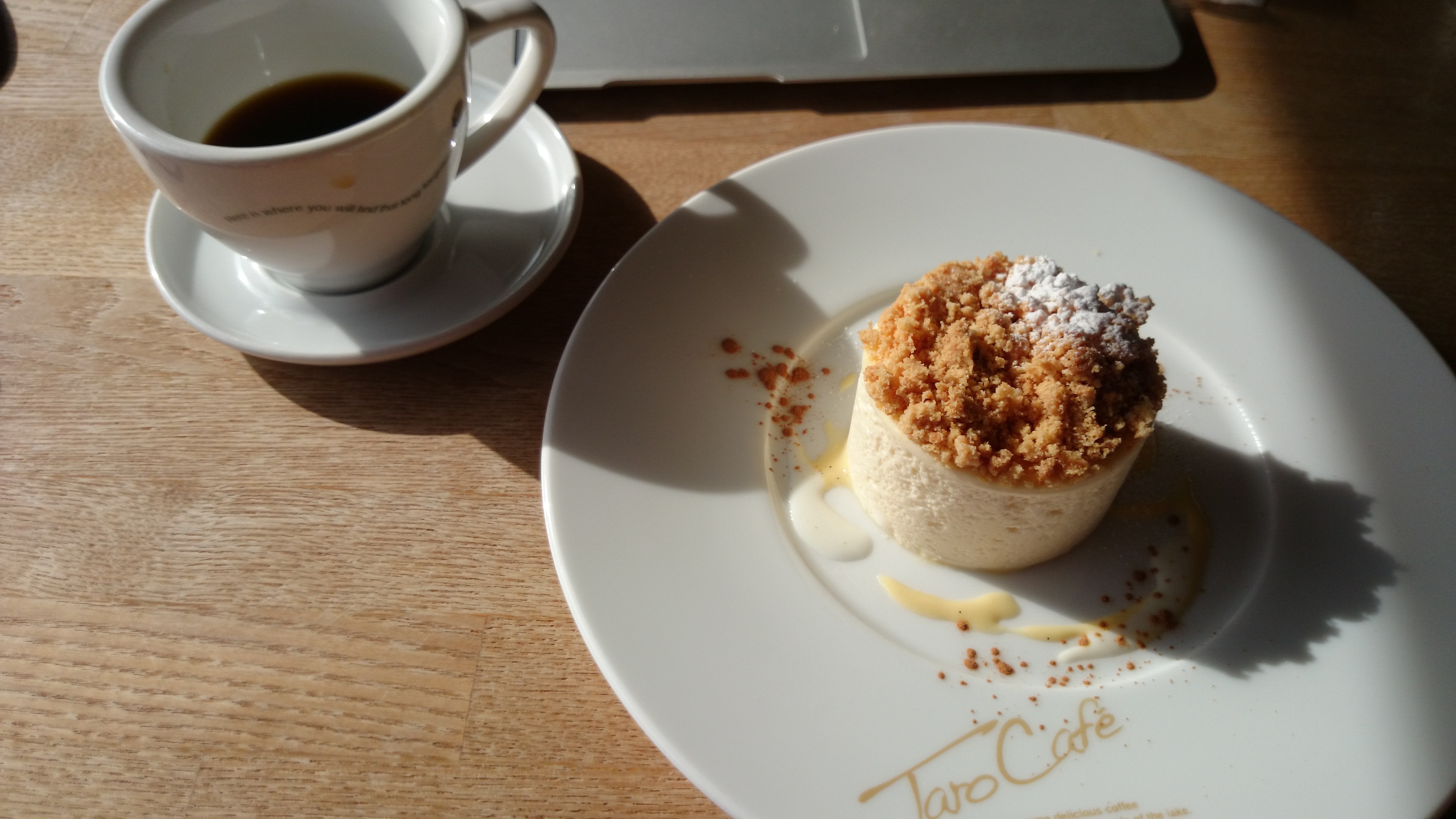
Great cafes aren’t usually something that spring to mind when people think of Japan. This is supposed to be the land of green tea and sushi after all, not cheesecake and cups of joe. But the Japanese do cafes – and coffee in general for that matter – so well.
You will of course find the usual big-name coffee chains dotted around the country, but you’ll also encounter a staggering number of independently owned cafes in Japan, staffed by people who dedicate their every waking hour to brewing the finest cup of joe imaginable, and the cafes themselves are some of the most stylish, comfortable and relaxing shrines to caffeine that you’re ever likely to visit. Somehow a trip to Starbucks of Caffe Nero just does seem the same after a handful of visits to Japan’s independent coffee houses, and even the cooler, privately owned cafes you do find in your homeland just don’t feel as charming or tranquil as Japan’s somehow.
9. The obligatory “kanpai” before drinking
No matter if it’s a quick beer after work or a farewell party attended by dozens of people, in Japan no one drinks until everyone has a glass in their hand and it has been cordially clinked. Live in Japan for any length of time and this custom becomes so ingrained that you’ll find yourself kanpai-ing your goldfish before sipping on a cheeky beer at home rather than drink without saying a word. If you head down to the pub with a friend in your homeland and they dare to take a sip of their drink before yours has been poured, meanwhile, you’d be completely forgiven for wanting to slap the glass out of their hand and call them a degenerate.
10. The amazing postal service
Just like in the west, if for some reason a package cannot be delivered to your home in Japan, you’ll receive a card through the door telling you so. But rather than this turning into a three-day-long debacle requiring trips to the post office or waiting around the house for hours on end, getting your parcel re-delivered in Japan is effortlessly easy. Either by calling the automated phone line (or sometimes even the driver him or herself as they often write their mobile phone number directly on the card), you can book a specific slot for re-delivery, choosing any of the two-hour windows right up until around 10 or 11 at night in some parts of the country. Some postmen will try two or three times to deliver a package even if you haven’t had chance to call, and when you do book a slot your stuff always, always, comes on time. No sitting around from 10am till 3pm peering out of the window and hoping for the best; Japan’s postal workers make it their mission to get your parcel into your hands.
11. Paying for stuff at the door

Speaking of deliveries, Japan’s cash-on-delivery (代金引換 daikin hikikae, or often just daibiki) is not only common, it’s also super convenient, especially for us foreigners. Say, for example, you just ordered a new video game or the latest realistic love doll online, but you don’t want to use your credit card because you’ll be charged a fee for overseas use or would rather not have a certain company’s name appear on your monthly statement. Well, if you choose the COD option, for a small fee (usually just a couple of hundred yen), you can book a delivery slot and pay the courier directly when he or she brings your new purchase to your door. Yup, online shopping just got even lazier.
12. The food
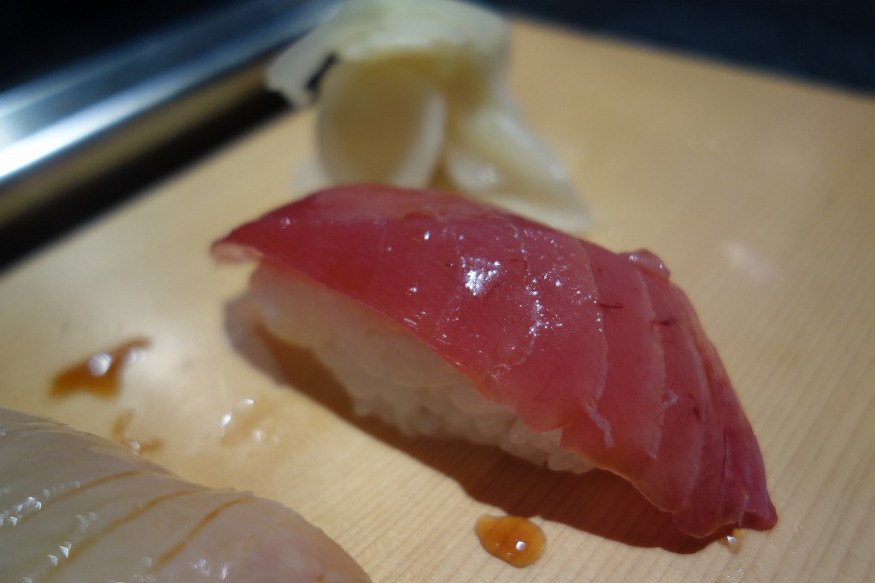
I mean, come on; Japanese food is amazing. Even if you live in a city where there are plenty of Japanese restaurants, rarely will you get the same level of quality for the same price, and places that you used to love before visiting Japan will – all pretension aside – probably come to feel decidedly sub-par after returning. I promise you: after leaving Japan, one of the first things you’ll dearly miss is the food.
13. Complimentary glasses of water everywhere
Just as you’ll get an oshibori hand-towel the second your bottom makes contact with your chair in a cafe or restaurant, so too will you be served a small glass of water. Even in establishments that would stand to make more money by pushing their coffee, booze or soft drinks, you’ll still be presented with a free cup of H20 when you sit down; it’s just part of that famous Japanese hospitality, and something you’ll really start to miss when your waiter looks down their nose at you for stressing the word “tap” when asking for water in restaurants back home.
14. Everyone making a big deal of the seasons
“Japan has four seasons, you know.” I’ve lost count of the number of times I’ve been told this by Japanese people. “Yeah, we have four seasons in the UK too,” I would reply to begin with, but after few years I started to understand why the changing of the seasons means so much to the Japanese people: because pretty much everything changes with them. The food; the festivals; the fashions; you name it, you can see distinct trends and changes in Japan along with the changes in the weather and surrounding flora. And while my native land does indeed have four seasons to be proud of, Japan’s seasons really are just so astoundingly distinct and beautiful in their own ways that it’s hard not to fall in love with every one of them – yes, even the mercilessly humid summers and toothpaste-going-hard-because-it’s-so-cold winters.
15. “Zakka” shops
I never imaged myself falling in love with something like zakka (literally meaning “miscellaneous goods”) shops, but I must have visited hundreds of them during my eight years in Japan. From coffee cups to sofas to spoons twisted in some weird way that makes them impossible to eat with but look effortlessly cool on your coffee table, you’ll rarely need any of the stuff on sale in these Aladdin’s caves of crafts and homeware, but you’ll almost always come out with something. Those dextrous Japanese really do trinkets and crafts exceptionally well, and there’s something so charming about their take on Western designs that its hard not to miss these myriad stores after leaving the country.
16. Toilets and bathrooms being in separate rooms
Smaller apartments with “unit bath” bathrooms (a sort of plastic cube with fitted bathtub/overhead shower, sink and toilet) are, admittedly, quite common in urban Japan, but for the most part the Japanese bathe and do their business in totally different rooms of the house. Which makes perfect sense if you ask us – after all, why would you want to get clean barely a couple of feet away from the place you made number twos just a couple of hours earlier? Ew.
17. Decent food at the convenience store
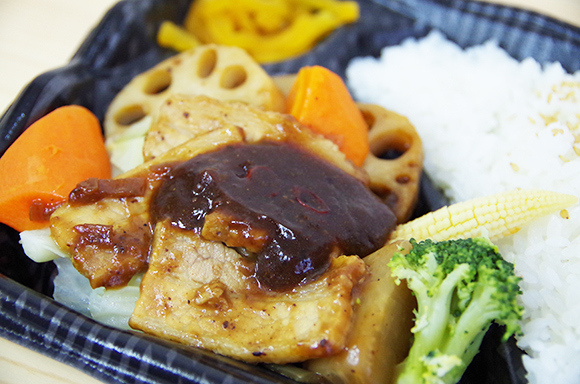
Few convenience stores in the west offer much in the way of nutritious snacks and meals. In my native UK, you’re mostly faced with rows of sad-looking sandwiches, questionable sausage rolls, crisps (chips to the rest of you), chocolate bars and sugary drinks, all offered as part of “meal deals”. (Spoiler: crisps and coke do not a meal make.)
Japan’s convenience stores, though, don’t mess around when it comes to food. Yes, you can find a huge variety of junk to thrust into your hungry face-hole, but you’ll also find freshly made snacks and whole meals containing rice, meat, noodles and wholesome vegetables – all day, every day. A combini bento lunch may never truly compare to a proper, home-made meal, but it’s not a bad second choice, and rarely do you have to feel especially guilty after eating it.
18. Sitting under a kotatsu
Nothing – I’ll say that again, nothing – compares to the feeling of sitting at one of these wonderful heated duvet-fitted tables in middle of winter. More luxuriant than a lengthy Sunday morning sofa session, yet vastly more comfortable and practical than even the sturdiest blanket fort, and it comes with a place to put your TV remote, snacks, drinks, laptop, smartphone, comics, book, whatever. Kotatsu, dear reader, are simply amazeballs. I know that’s a ridiculous word, but it’s the only one that comes even remotely close to conveying how great these things are.
19. Onigiri
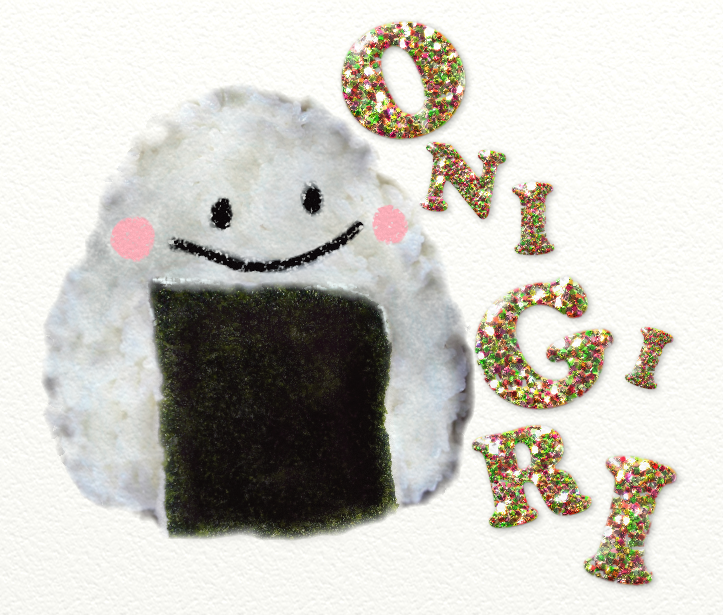
Yes, we’ve covered Japanese food, and yes, these are essentially just balls of rice with a little bit of something in the middle, but they deserve a special mention nevertheless.
Onigiri, even the machine-made ones you can buy at convenience stores, are super tasty and wonderfully satisfying. They’re cheap, they’re filling, you can eat them morning, noon or night, and they’re tough enough to withstand being thrown in the bottom of a bag without turning completely to mush. “But what of sandwiches, Sir Philip?” you might say in an attempt to find a Western equivalent while sounding like an insubordinate servant girl from the past. But sandwiches simply don’t have the same wholesome, comfort-food feel that onigiri offer, and they’re nowhere near as moreishly simple.
20. Shoes off in the house
One of the worst things for anyone who has returned to their homeland but sticks to the Japanese practice of removing their footwear before coming indoors is when someone visits their home and walks in wearing their dirty old shoes or trainers. It’s a moment of terrible awkwardness that few will understand: friend or not, their footwear in your home might as well be a molting, mud-splattered labrador bounding across the couches and rolling around on the rug. Yet you don’t want to come across as uptight or “that guy who won’t let the Japan thing go” by asking them to leave their footwear at the door. Worse still is when repairmen visit your home and you find yourself staring at their boots while wondering whether it would be crossing a line to ask a perfect stranger to take their shoes off before entering your beautiful, unsullied abode.
But seriously, guys, outdoor shoes in the house is really, really gross. Let’s stop that madness right now.
21. And finally… The “time to go home, kids” jingle
Known as “iriai no kane” (入り相の鐘) after the bells that were once rung at temples as the sun began to set each day, many towns and villages in Japan use their old public address systems to play a short jingle early each evening as a way of telling the local kids that it’s time to head home. (It’s also, purportedly, a way of testing the speaker system so that it can be used in times of emergency.) Where I used to live, a wobbly, elevator music-style version of The Beatles’ “Let It Be” used to play at 5:30pm (or half an hour earlier in the winter) every single day, until it was suddenly and inexplicably replaced by the annoyingly catchy “It’s a Small World” a couple of years later. Kind of like a town clock but groovier, iriai no kane are the kind of endearing little pieces of Japan that many foreigners miss after returning home. That it, of course, unless the town or village that they used to live in also played their selected jingle at 6am…
What things do you, or would you, miss about Japan after leaving the country? We’re sure you can think of plenty more, so let us know in the comments section below!
Featured image: RocketNews24

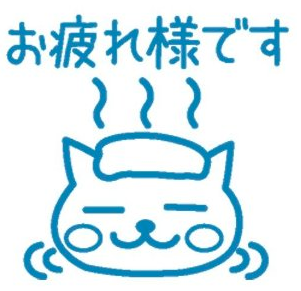
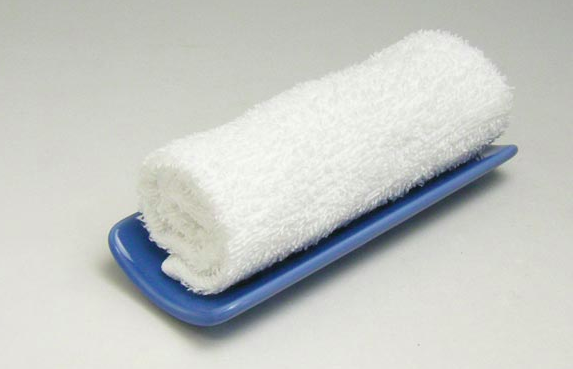
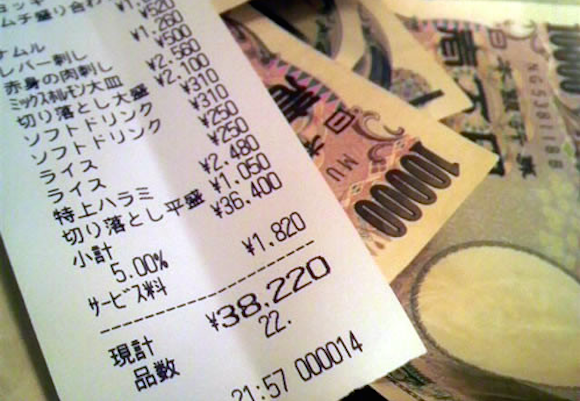
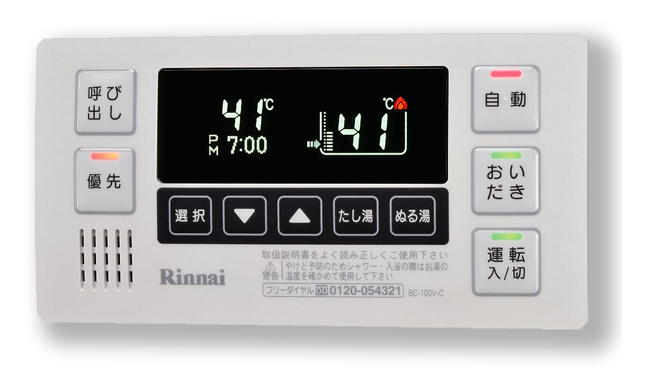
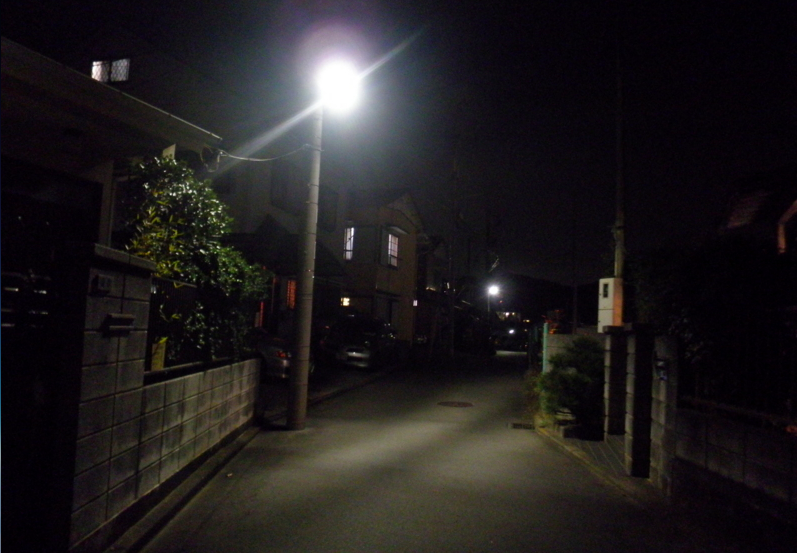
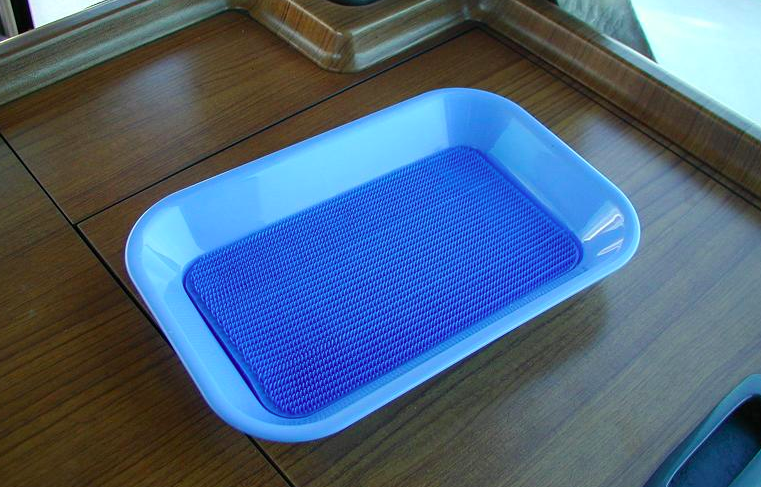
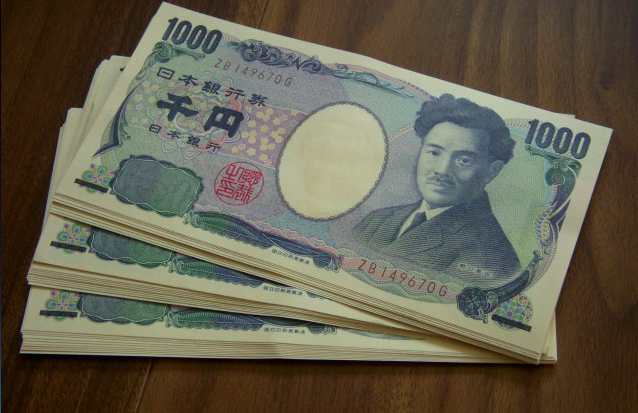
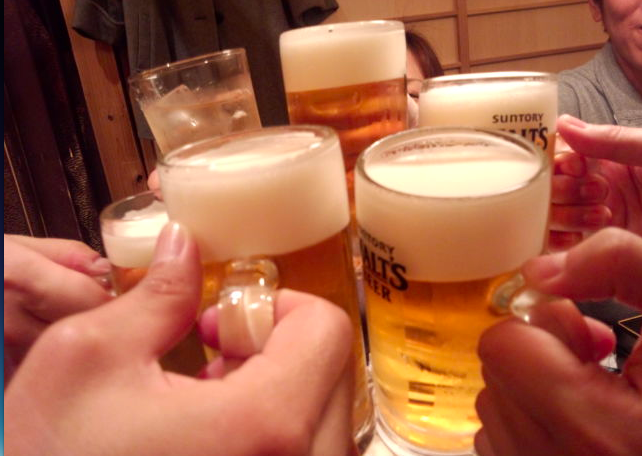
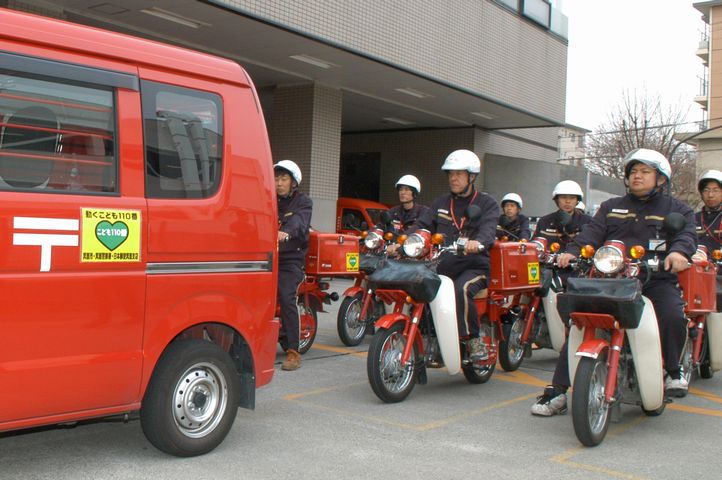
 FC2 Blogs
FC2 Blogs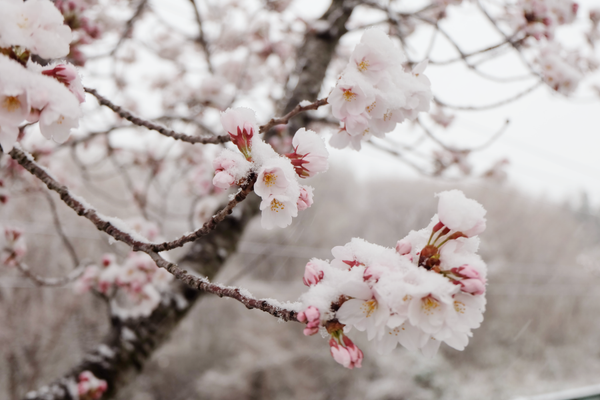
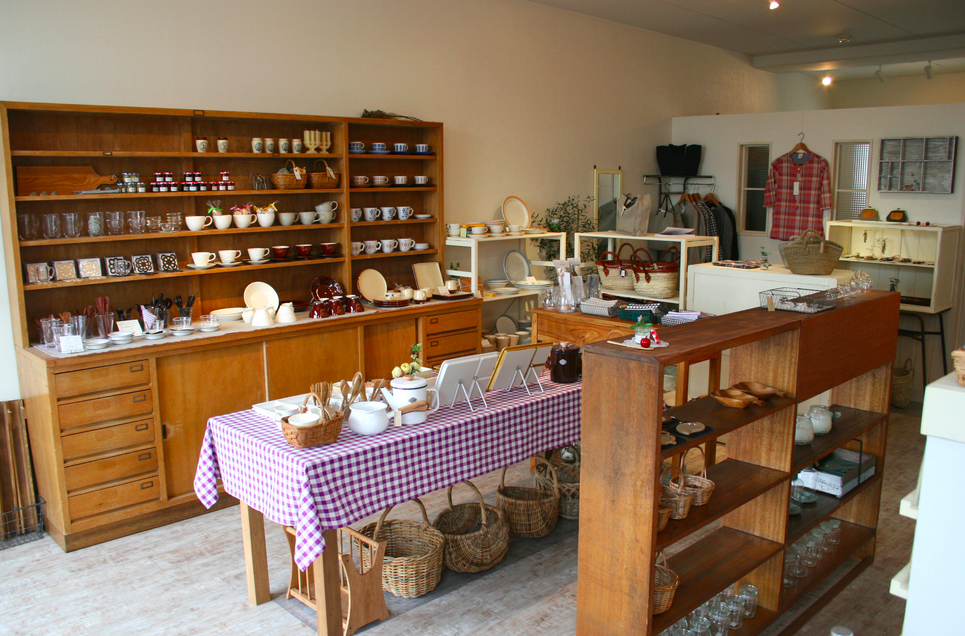
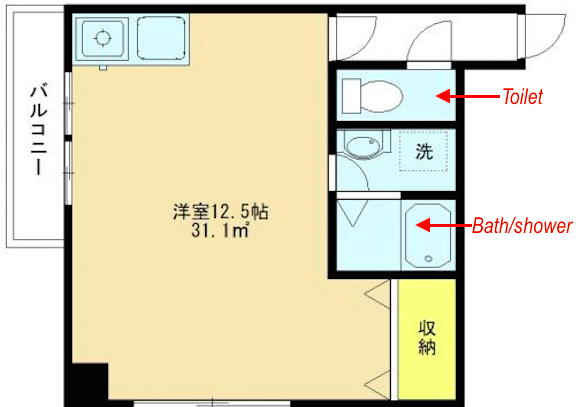 AiwaLiving
AiwaLiving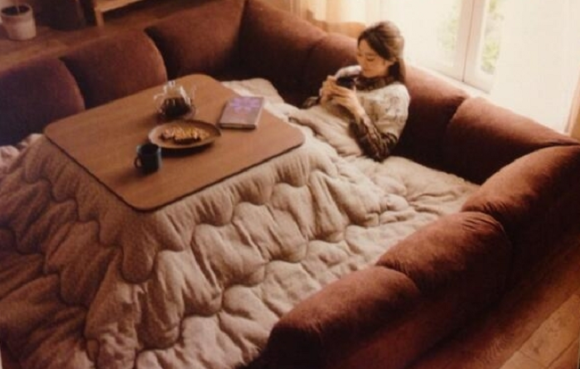
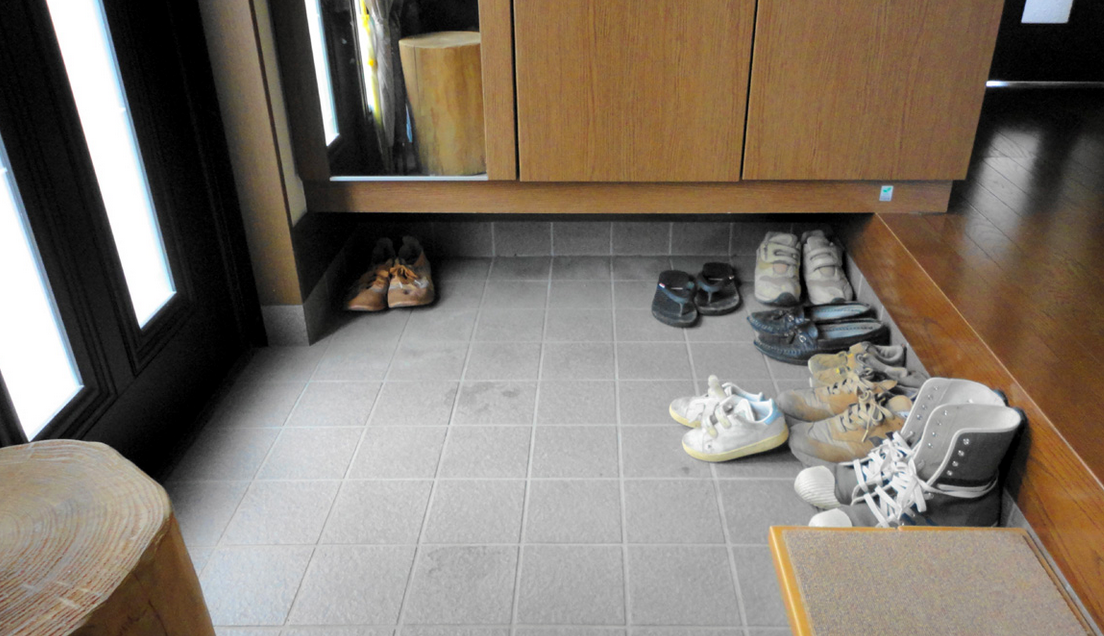 Fujikawa
Fujikawa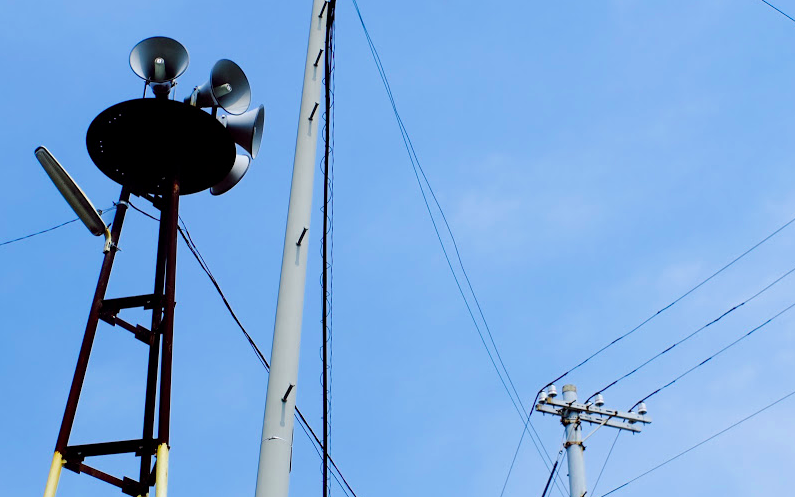 Fotofull Weekend
Fotofull Weekend W.T.F. Japan: Top 5 offbeat Japanese animal cafes【Weird Top Five】
W.T.F. Japan: Top 5 offbeat Japanese animal cafes【Weird Top Five】 The top 10 instances when Japanese people feel thankful to be Japanese
The top 10 instances when Japanese people feel thankful to be Japanese Is 150,000 yen (US$1,389) a month enough to live on in Tokyo? Depends what kind of life you want
Is 150,000 yen (US$1,389) a month enough to live on in Tokyo? Depends what kind of life you want 6 surprising things about having a baby in Japan
6 surprising things about having a baby in Japan 5 tips for staying healthy while traveling in Japan this winter!
5 tips for staying healthy while traveling in Japan this winter! McDonald’s new Happy Meals offer up cute and practical Sanrio lifestyle goods
McDonald’s new Happy Meals offer up cute and practical Sanrio lifestyle goods All-you-can-drink Starbucks and amazing views part of Tokyo’s new 170 meter-high sky lounge
All-you-can-drink Starbucks and amazing views part of Tokyo’s new 170 meter-high sky lounge Studio Ghibli glasses cases let anime characters keep an eye on your spectacles
Studio Ghibli glasses cases let anime characters keep an eye on your spectacles More foreign tourists than ever before in history visited Japan last month
More foreign tourists than ever before in history visited Japan last month Beautiful Sailor Moon manhole cover coasters being given out for free by Tokyo tourist center
Beautiful Sailor Moon manhole cover coasters being given out for free by Tokyo tourist center Starbucks reopens at Shibuya Scramble Crossing with new look and design concept
Starbucks reopens at Shibuya Scramble Crossing with new look and design concept Is the new Shinkansen Train Desk ticket worth it?
Is the new Shinkansen Train Desk ticket worth it? Mister Donut ready to make hojicha dreams come true in latest collab with Kyoto tea merchant
Mister Donut ready to make hojicha dreams come true in latest collab with Kyoto tea merchant The oldest tunnel in Japan is believed to be haunted, and strange things happen when we go there
The oldest tunnel in Japan is believed to be haunted, and strange things happen when we go there Kyushu-exclusive Black Mont Blanc goes nationwide in a “Special” way
Kyushu-exclusive Black Mont Blanc goes nationwide in a “Special” way Disney princesses get official manga makeovers for Manga Princess Cafe opening in Tokyo
Disney princesses get official manga makeovers for Manga Princess Cafe opening in Tokyo Beautiful new Final Fantasy T-shirt collection on the way from Uniqlo【Photos】
Beautiful new Final Fantasy T-shirt collection on the way from Uniqlo【Photos】 Foreign English teachers in Japan pick their favorite Japanese-language phrases【Survey】
Foreign English teachers in Japan pick their favorite Japanese-language phrases【Survey】 Japanese convenience store packs a whole bento into an onigiri rice ball
Japanese convenience store packs a whole bento into an onigiri rice ball We try out “Chan Ramen”, an underground type of ramen popular in the ramen community
We try out “Chan Ramen”, an underground type of ramen popular in the ramen community Studio Ghibli releases Kiki’s Delivery Service chocolate cake pouches in Japan
Studio Ghibli releases Kiki’s Delivery Service chocolate cake pouches in Japan Japan’s bone-breaking and record-breaking roller coaster is permanently shutting down
Japan’s bone-breaking and record-breaking roller coaster is permanently shutting down New definition of “Japanese whiskey” goes into effect to prevent fakes from fooling overseas buyers
New definition of “Japanese whiskey” goes into effect to prevent fakes from fooling overseas buyers Our Japanese reporter visits Costco in the U.S., finds super American and very Japanese things
Our Japanese reporter visits Costco in the U.S., finds super American and very Japanese things Studio Ghibli unveils Mother’s Day gift set that captures the love in My Neighbour Totoro
Studio Ghibli unveils Mother’s Day gift set that captures the love in My Neighbour Totoro Foreign passenger shoves conductor on one of the last full runs for Japan’s Thunderbird train
Foreign passenger shoves conductor on one of the last full runs for Japan’s Thunderbird train Domino’s Japan now sells…pizza ears?
Domino’s Japan now sells…pizza ears? New Japanese KitKat flavour stars Sanrio characters, including Hello Kitty
New Japanese KitKat flavour stars Sanrio characters, including Hello Kitty Kyoto creates new for-tourist buses to address overtourism with higher prices, faster rides
Kyoto creates new for-tourist buses to address overtourism with higher prices, faster rides Sales of Japan’s most convenient train ticket/shopping payment cards suspended indefinitely
Sales of Japan’s most convenient train ticket/shopping payment cards suspended indefinitely Sold-out Studio Ghibli desktop humidifiers are back so Totoro can help you through the dry season
Sold-out Studio Ghibli desktop humidifiers are back so Totoro can help you through the dry season Japanese government to make first change to romanization spelling rules since the 1950s
Japanese government to make first change to romanization spelling rules since the 1950s Ghibli founders Toshio Suzuki and Hayao Miyazaki contribute to Japanese whisky Totoro label design
Ghibli founders Toshio Suzuki and Hayao Miyazaki contribute to Japanese whisky Totoro label design Doraemon found buried at sea as scene from 1993 anime becomes real life【Photos】
Doraemon found buried at sea as scene from 1993 anime becomes real life【Photos】 Tokyo’s most famous Starbucks is closed
Tokyo’s most famous Starbucks is closed One Piece characters’ nationalities revealed, but fans have mixed opinions
One Piece characters’ nationalities revealed, but fans have mixed opinions We asked a Uniqlo employee what four things we should buy and their suggestions didn’t disappoint
We asked a Uniqlo employee what four things we should buy and their suggestions didn’t disappoint Princesses, fruits, and blacksmiths: Study reveals the 30 most unusual family names in Japan
Princesses, fruits, and blacksmiths: Study reveals the 30 most unusual family names in Japan The fantastic feast of festival food in Japan
The fantastic feast of festival food in Japan Pop quiz: Test yourself in 5 situations of Japanese manners and customs
Pop quiz: Test yourself in 5 situations of Japanese manners and customs 30 common characteristics of people who fall in love with Japan
30 common characteristics of people who fall in love with Japan 8 Japan-related events to look forward to in 2016!
8 Japan-related events to look forward to in 2016! Italians taste test Japanese canned coffee and tell us what they think【Video】
Italians taste test Japanese canned coffee and tell us what they think【Video】 Designer’s tweets during first trip to Japan perfectly show why it’s such a great place to visit
Designer’s tweets during first trip to Japan perfectly show why it’s such a great place to visit The mystery of the phantom “sake pass card” at Japanese alcohol vending machines
The mystery of the phantom “sake pass card” at Japanese alcohol vending machines Easy peasy lemon squeezy: Our writer attempts to make salted lemon
Easy peasy lemon squeezy: Our writer attempts to make salted lemon Sweet potato sweets season arrives at convenience store Family Mart, so let’s go taste-test-crazy
Sweet potato sweets season arrives at convenience store Family Mart, so let’s go taste-test-crazy Seven Japanese beauty products recommended by Twitter that are perfect for lazy girls
Seven Japanese beauty products recommended by Twitter that are perfect for lazy girls One in four surveyed Japanese workers admits to wanting to kill boss, Osaka quake helps show why
One in four surveyed Japanese workers admits to wanting to kill boss, Osaka quake helps show why How to make okonomiyaki at home【SoraKitchen】
How to make okonomiyaki at home【SoraKitchen】 New ‘Shrine Cafe’ in Tokyo offers fortune-telling and counseling services with your tea
New ‘Shrine Cafe’ in Tokyo offers fortune-telling and counseling services with your tea We take a giraffe nap in a standing sleep pod at a cafe in Tokyo
We take a giraffe nap in a standing sleep pod at a cafe in Tokyo 10 weird and wonderful things you can find in a Japanese drugstore
10 weird and wonderful things you can find in a Japanese drugstore
Leave a Reply